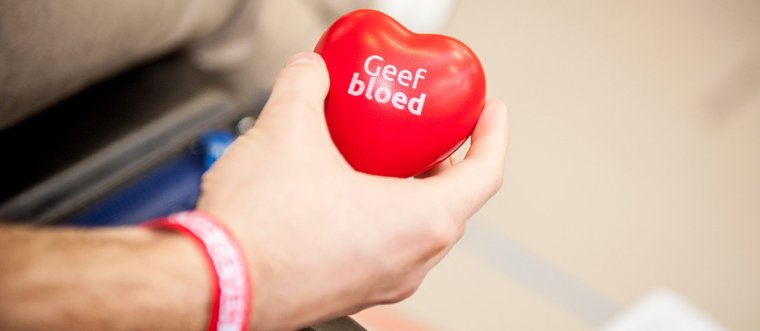Safe blood products: top priority for Belgian Red Cross-Flanders

In the wake of the contaminated blood scandal in the United Kingdom, which cost the lives of thousands of patients, Belgian Red Cross-Flanders wants to clarify how it pursues the highest quality of blood products (blood, plasma, platelets). In the 1970s and 1980s, blood products in the United Kingdom, used to treat hemophilia and other conditions, were contaminated with HIV and Hepatitis C. These blood products were obtained from donors from high-risk populations, including prisoners and individuals in the United States who were paid for their donations.
Safety first
For Belgian Red Cross-Flanders , the top priority is to provide sufficient and safe blood products that save lives and help patients in their healing process. The safety and health of both the patient (recipient) and the donor are central to this. For decades, the blood banking industry has followed the precautionary principle, which dictates that, even when there is uncertainty about a particular risk, actions must be taken to ensure maximum safety in the interest of public health. The high degree of safety in transfusions today is achieved by combining three different layers of safety, each imperfect in itself.
- Strict donor selection procedure: To ensure the safety of blood products, Belgian Red Cross-Flanders has a strict donor selection procedure. Prior to a 1st donation, we ask to take the donor self-test via our website. At the donor center itself, the donor completes a questionnaire that is discussed with a physician. The doctor checks the donor's health status and asks about certain risk situations. In some cases, the donor is asked to postpone his/her donation in order to minimize any risk of contamination (after a tattoo or piercing, after staying in a high-risk country, with flu, taking certain medication, after risky sexual contact, etc.). This delay can range from 1 week to 6 months. The questionnaire and deferral periods are scientifically based and often legislated. Donor selection is the main form of protection against recently acquired HIV/HBV/HCV/syphilis infections where tests may initially still show false negatives and against other blood-borne infections not (yet) tested for. Donor selection is a budget-friendly measure, which in addition can be adapted very quickly in case of new infectious diseases. However, donor selection is imperfect because it is influenced by the extent to which the donor answers truthfully to the questionnaire.
- Thorough testing: A second layer of safety is provided by conducting tests. After collection, we process the blood products immediately. During that process, we watch over safety and quality. We do the processing - which takes place in the labs at Belgian Red Cross-Flanders - as efficiently as possible so that we can deliver to hospitals in a timely manner. Every donation is thoroughly tested for the presence of infections such as HIV, hepatitis B and C and syphilis. Blood products are not released until all safety requirements are met: when the donor meets all donation requirements, the processing process went correctly, and the blood product scored well on all lab tests. Every day we test thousands of blood samples. No matter how many times someone donates, we test the donation just as thoroughly each time. If there is an abnormal test result, we notify the donor in writing.
- Additional measures for plasma and platelet concentrates: For plasma and platelet concentrates, Belgian legislation requires that they be "pathogen reduced" (this means that the blood product is treated so that any bacteria or viruses present can no longer multiply). This method theoretically protects against all pathogens, but is imperfect in practice: some pathogens (e.g., HAV and HEV) are not very sensitive to pathogen reduction, and when a high viral (or bacterial) load is present, pathogen reduction will fail to completely eliminate the pathogens.
Even though each layer of security is imperfect on its own, together they manage to make transfusion-borne infections very rare.
Important factor: voluntary and unpaid donors
Plasma, blood and platelet donation is today in our country an act of voluntary solidarity without compensation, and it has worked well for years. Based on scientific data, the current approach to voluntary blood product donations seems to be the only right one. That data shows that unreimbursed voluntary donations provide increased safety for donors and the donated products, lower health care costs and a more resilient supply during times of crisis. The situation uncovered in the UK supports this. Belgian Red Cross-Flanders advocates maintaining the current, well-functioning, system. Recent years have shown that Flemings are willing to donate blood products voluntarily and without compensation, making this way of doing things the best, especially for those who need blood, plasma or platelets daily.
Decision
For Belgian Red Cross-Flanders , the top priority is to provide sufficient and safe blood products to help patients in their healing process and sometimes save their lives. Thanks to a rigorous procedure, also included in the Belgian law on blood and blood derivatives, and with great thanks to the donors who do this voluntarily and unpaid, we can achieve this.
